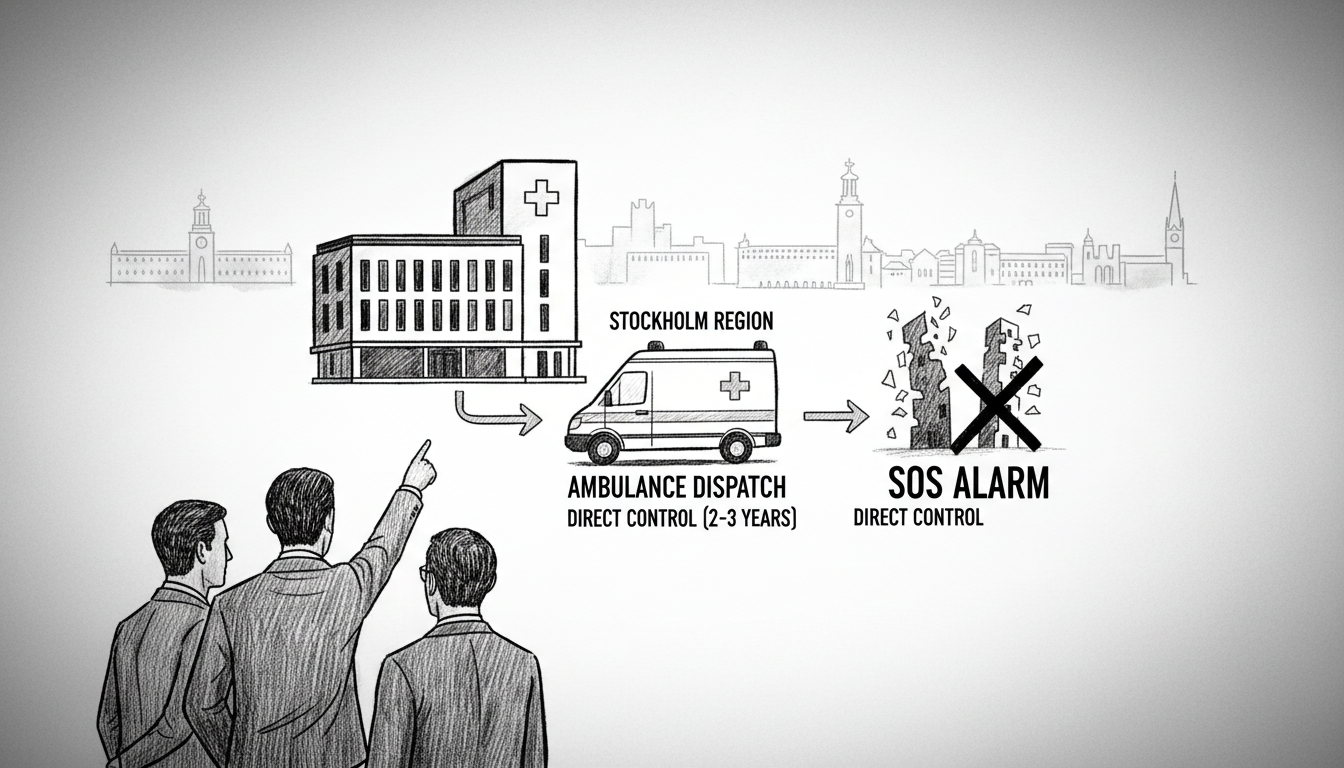Stockholm's healthcare system will undergo a major transformation as the regional government assumes direct control of ambulance dispatch operations. This change ends the current arrangement where ambulance staff work for the region but receive assignments from external provider SOS Alarm.
Ambulance nurse Emil Skoglund, who also serves as chief safety representative for Stockholm's ambulance services, welcomes the move. He calls it a fantastic step in the right direction for working conditions. The current split employment structure has created accountability gaps in workplace safety management.
Overtime assignments represent one clear example of this problem. Under the existing system, no single employer could take full responsibility for working environment issues. This structural flaw has complicated labor relations and workplace safety oversight.
The regional government initially decided to take over ambulance dispatch services during summer 2022. However, officials extended the contract with SOS Alarm last year. Now the transition appears firmly scheduled, though implementation will require substantial time.
According to Talla Alkurdi, Stockholm's healthcare regional councilor, the handover will occur during the first half of the next political term. This timeline suggests the change will materialize within two to three years. The complexity of the transition explains the extended timeframe.
The dispatch process involves two distinct functions that the region plans to consolidate gradually. Priority assessment determines how urgent a medical response needs to be. Dispatch coordination involves sending the most appropriate resources while considering distance, availability, and required medical expertise.
Region Stockholm already manages ambulance operations directly. The upcoming changes will complete the consolidation by bringing dispatch functions under the same management. The region also plans to eventually assume control of priority assessment services, though this requires additional time.
This reorganization reflects broader trends in Swedish healthcare decentralization. Regional governments across Sweden have been taking greater control over emergency medical services. The move could streamline operations and improve accountability within Stockholm's emergency response system.
International readers should understand that Sweden's healthcare system operates primarily at the regional level rather than nationally. This structure allows different regions to customize service delivery approaches. Stockholm's ambulance dispatch reforms demonstrate how regional governments exercise this autonomy to address local operational challenges.
The transition period will require careful coordination to maintain emergency response capabilities. Ambulance staff will need updated training and protocols as management structures change. Patients should experience minimal disruption during the handover process, though the long-term benefits include more integrated emergency medical services.
Stockholm's approach could influence other Swedish regions considering similar reforms. The success of this consolidation may determine whether other regional governments follow suit with their own ambulance service reorganizations.
